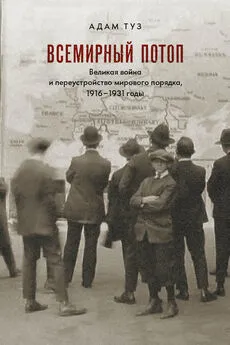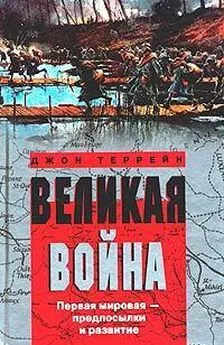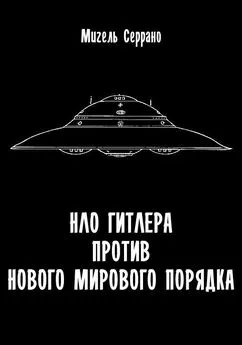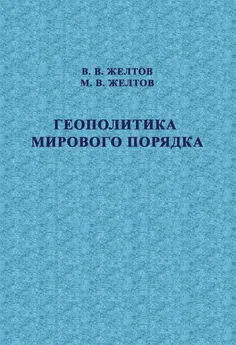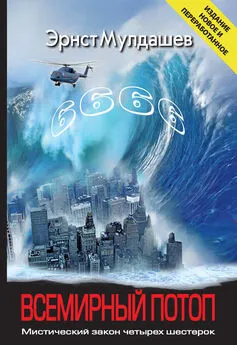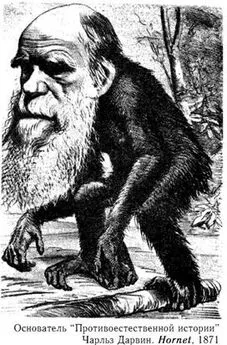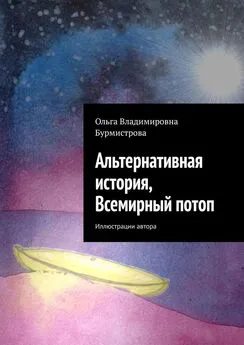Адам Туз - Всемирный потоп. Великая война и переустройство мирового порядка, 1916–1931 годы
- Название:Всемирный потоп. Великая война и переустройство мирового порядка, 1916–1931 годы
- Автор:
- Жанр:
- Издательство:Литагент ИЭП им.Гайдара
- Год:2017
- Город:Москва
- ISBN:978-5-93255-503-3
- Рейтинг:
- Избранное:Добавить в избранное
-
Отзывы:
-
Ваша оценка:
Адам Туз - Всемирный потоп. Великая война и переустройство мирового порядка, 1916–1931 годы краткое содержание
Всемирный потоп. Великая война и переустройство мирового порядка, 1916–1931 годы - читать онлайн бесплатно ознакомительный отрывок
Интервал:
Закладка:
1316
M. Berg, Gustav Stresemann und die Vereinigten Staaten von Amerika: weltwirtschaftliche Verflechtung und Revisionspolitik, 1907–1929 (Baden-Baden, 1990).
1317
Fischer, The Ruhr Crisis, p. 230.
1318
Martin, France, p. 188.
1319
H.-P. Schwarz, Konrad Adenauer: A German Politician and Statesman in a Period of War, Revolution, and Reconstruction (Oxford, 1995), vol. 1, p. 171–194.
1320
Feldman, Great Disorder, p. 768.
1321
R. Scheck, «Politics of Illusion: Tirpitz and Right-Wing Putschism, 1922–1924», German Studies Review 18 (1995), p. 29–49.
1322
A. Wirsching, Vom Weltkrieg zum Buergerkrieg? Politischer Extremismus in Deutschland und Frankreich, 1918–1933/39. Berlin und Paris im Vergleich (Munich, 1999), p. 238.
1323
D. R. Stone, «The Prospect of War? Lev Trotskii, the Soviet Army, and the German Revolution in 1923», The International History Review 25, no. 4 (December 2003), p. 799–817.
1324
G. Feldman, «Bayern und Sachsen in der Hyperinflation 1922», Historische Zeitschrift 238(1984), p. 569–609.
1325
D. Pryce, «The Reich Government versus Saxony, 1923: The Decision to Intervene», Central European History 10 (1977), p. 112–147.
1326
Feldman, Great Disorder, p. 774.
1327
K. Schwabe (ed.), Die Ruhrkrise 1923: Wendepunkt der internationalen Beziehungen nachdem Ersten Weltkrieg (Paderborn, 1985), p. 29–38.
1328
Feldman, Great Disorder, p. 776–777.
1329
G. Schulz (ed.), Konrad Adenauer 1917–1933 (Cologne, 2003), 203–232, and K. D. Erdmann, Adenauer in der Rheinlandpolitik nach dem Ersten Weltkrieg (Stuttgart, 1966).
1330
Schulz, Konrad Adenauer 1917–1933, p. 346.
1331
Maier, Great Disorder, p. 393.
1332
Feldman, Great Disorder, p. 825.
1333
Ibid., p. 661.
1334
Berg, Stresemann, p. 160, 168–169, 171.
1335
Link, Stabilisierungspolitik, p. 206–207.
1336
A. Orde, British Policy and European Reconstruction after the First World War (Camtiridge 1990), p. 244.
1337
Krumeich and Schroeder (eds), Der Schatten, p. 80.
1338
J. Bariéty, Les Relations Franco-Allemands aprés la Premiиre Guerre Mondiale (Paris, 1977), p. 263–265.
1339
Berg, Stresemann, p. 159.
1340
Leffler, Elusive Quest, p. 94–95.
1341
Ibid., p. 99.
1342
Yearwood, Guarantee of Peace, p. 273–289.
1343
D. Marquand, Ramsay MacDonald (London, 1997), p. 297–305.
1344
The Times, «MacDonald on Ruhr», 12 February 1923, 12, and «Mr. MacDonald On Ruhr „Success“», 26 September 1923.
1345
Marquand, MacDonald, 333; The Times, «Labour and Allied Debts», 13 December 1923.
1346
J. C. Cairns, «A Nation of Shopkeepers in Search of a Suitable France: 1919–1940», The American Historical Review 79, no. 3 (June 1974), p. 721.
1347
Martin, France, p. 189–192.
1348
S. A. Schuker, The End of French Predominance in Europe: The Financial Crisis of 1924 and the Adoption of the Dawes Plan (Chapel Hill, NC, 1976), p. 28, 53–57.
1349
E. L. Dulles, The French Franc, 1914–1928: The Facts and their Interpretation (New York, 1929), p. 170–174.
1350
Martin, France, p. 232–233; Maier, Recasting, p. 460–471.
1351
Leffler, Elusive Quest, p. 97.
1352
Feldman, Great Disorder, p. 829.
1353
D. Neri-Ultsch, Sozialisten und Radicaux – eine schwierige Allianz (Munich, 2005).
1354
Leffler, Elusive Quest, p. 100–104.
1355
Leffler, Elusive Quest, p. 105.
1356
FRUS: Lansing Papers, 1924, vol. 2, p. 28–30; B. Glad, Charles Evans Hughes and the Illusions of Innocence: A Study in American Diplomacy (Urbana, IL, 1966), p. 227.
1357
Schuker, End of French Predominance, p. 103.
1358
J. Wright, Gustav Stresemann: Weimar’s Greatest Statesman (Oxford, 2002), p. 275.
1359
Scheck, «Politics of Illusion».
1360
Feldman, Great Disorder, p. 801.
1361
T. Raithel, Das Schwierige Spiel des Parlamentarismus: Deutscher Reichstag und französische Chambre des Députés in den Inflationskrisen der 1920er Jahre (Munich, 2005), p. 196–341.
1362
Feldman, Great Disorder, p. 822–823.
1363
Ibid., p. 815, 802.
1364
Leffler, Elusive Quest, p. 111.
1365
W. McNeil, American Money and the Weimar Republic: Economics and Politics on the Eve of the Great Depression (New York, 1986), p. 33.
1366
Cohrs, Unfinished Peace.
1367
Речь лауреата Нобелевской премии см. на: www.nobelprize.org/nobel_prizes/peace/ laureates/1926/stresemann-lecture.html.
1368
О развитии «пацифизма как Realpolitik» в Германии см.: L. Haupts, Deutsche Friedens-politik, 1918–1919 (Dusseldorf, 1976).
1369
S. Hoffmann, Gulliver’s Troubles, or the Setting of American Foreign Policy (New York, p. 53.
1370
Documents on British Foreign Policy, 1919–1939 [DBFP], series 1a, vol. 5, ed. E. L. Woodward and Rohan Butler (London, 1973), p. 857–75; B. McKercher, The Second Baldwin Government and the United States, 1924–1929: Attitudes and Diplomacy (Cambridge, 1984), p. 174.
1371
W. Link, Die amerikanische Stabilisierungspolitik in Deutschland 1921-32 (Düsseldorf, 1970) p. 223–241.
1372
W. McNeil, American Money and the Weimar Republic: Economics and Politics on the Eve of the Great Depression (New York, 1986).
1373
A. Ritschl, Deutschlands Krise und Konjunktur, 1924–1934: Binnenkonjunktur, Auslands-verschuldung und Reparationsproblem zwischen Dawes-Plan und Transfersperre (Berlin, 2002).
1374
A. Thimme, «Gustav Stresemann: Legende und Wirklichkeit», Historische Zeitschrift 181 (1956) p. 314.
1375
R. Boyce, British Capitalism at the Crossroads, 1919–1932 (New York, 1987), p. 66–78.
1376
K. Polanyi, The Great Transformation: The Political and Economic Origins of Our Times (Boston, MA, 1944), p. 27; Поланьи К. Великая трансформация: политические и экономические истоки нашего времени. СПб., 2002, с. 37.
1377
G. Gorodetsky, «The Soviet Union and Britain’s General Strike of May 1926», Cahiers du monde russe et soviétique 17, no. 2/3 (1976), p. 287–310; J. Jacobson, When the Soviet Union Entered World Politics (Berkeley, CA, 1994), p. 169–172.
1378
Diggins, «Flirtation with Fascism: American Pragmatic Liberals and Mussolini’s Italy», The American Historical Review 71, no. 2 (1966), p. 487–506.
1379
S. Romano, Guiseppe Volpi et l’italie moderne: Finance, industrie et état de l’nre giolittienne а la deuxinme guerre mondiale (Rome, 1982).
1380
G. Allen, «The Recent Currency and Exchange Policy of Japan», The Economic Journal 35, no. 137 69254 p. 66–83.
1381
M. Metzler, Lever of Empire: The International Gold Standard and the Crisis of Liberalism in Prewar Japan (Berkeley, CA, 2005), p. 149.
1382
R. A. Dayer, Bankers and Diplomats in China, 1917–1925: The Anglo-American Relationship (London, 1981), p. 178.
1383
B. D. Rhodes, «Reassessing „Uncle Shylock“: The United States and the French War Debt, 1917–1929», The Journal of American History 55, no. 4 (March 1969), p. 787–803.
1384
О фашистском движении во Франции 1920-х годов см.: K.-J. Müller, «„Faschismus“ in Frankreichs Dritter Republik?», in H. Müller and M. Kittel (eds), Demokratie in Deutschland und Frankreich, 1918–1933/40 (Munich, 2002), p. 91–130.
1385
T. Raithel, Das schwierige Spiel des Parlamentarismus: Deutscher Reichstag und fran-zösische Chambre des Députés in den Inflationskrisen der 1920er Jahre (Munich, 2005), p. 480–519.
1386
D. Amson, Poincaré: L’acharné de la politique (Paris, 1997), p. 352–353.
1387
R. M. Haig, The Public Finances of Post-War France (New York, 1929), p. 173.
1388
R. Boyce, The Great Interwar Crisis and the Collapse of Globalization (Basingstoke, 2009), p. 165.
1389
M. P. Leffler, The Elusive Quest: America’s Pursuit of European Stability and French Security 1919–1933 (Chapel Hill NC, W9) p. 153.
1390
R. Boyce, British Capitalism at the Crossroads, 1919–1932 (New York, 1987), p. 144–146.
1391
P. Yearwood, Guarantee of Peace: The League of Nations in British Policy, 1914–1925 (Oxford, 2009), p. 342.
1392
M. Beloff, Imperial Sunset: Britain’s Liberal Empire 1897–1921 (London, 1969), vol. 2, 140, цит. по: DBFP, series 1a, III, p. 734.
1393
Yearwood, Guarantee, p. 342.
1394
Boyce, Great Interwar Crisis, p. 133.
1395
J. R. Ferris, The Evolution of British Strategic Policy, 1919–1926 (Basingstoke, 1989), p. 158–178.
1396
Yearwood, Guarantee, p. 355.
1397
G. Unger, Aristide Briand: Leferme conciliateur (Paris, 2005), p. 532–537.
1398
P. O. Cohrs, The Unfinished Peace after World War I: America, Britain and the Stabilisation of Europe, 1919–1932 (Cambridge, 2006), p. 448–476.
1399
J. Wheeler-Bennett, Information on the Renunciation of War, 1927–1928 (London, 1928),p. 56.
1400
Jacobson, When the Soviet Union, p. 247.
1401
A. Iriye, The Cambridge History of American Foreign Relations, vol. 3, The Globalizing of America, 1913–1945 (Cambridge, 1993), p. 103–106.
Читать дальшеИнтервал:
Закладка:
